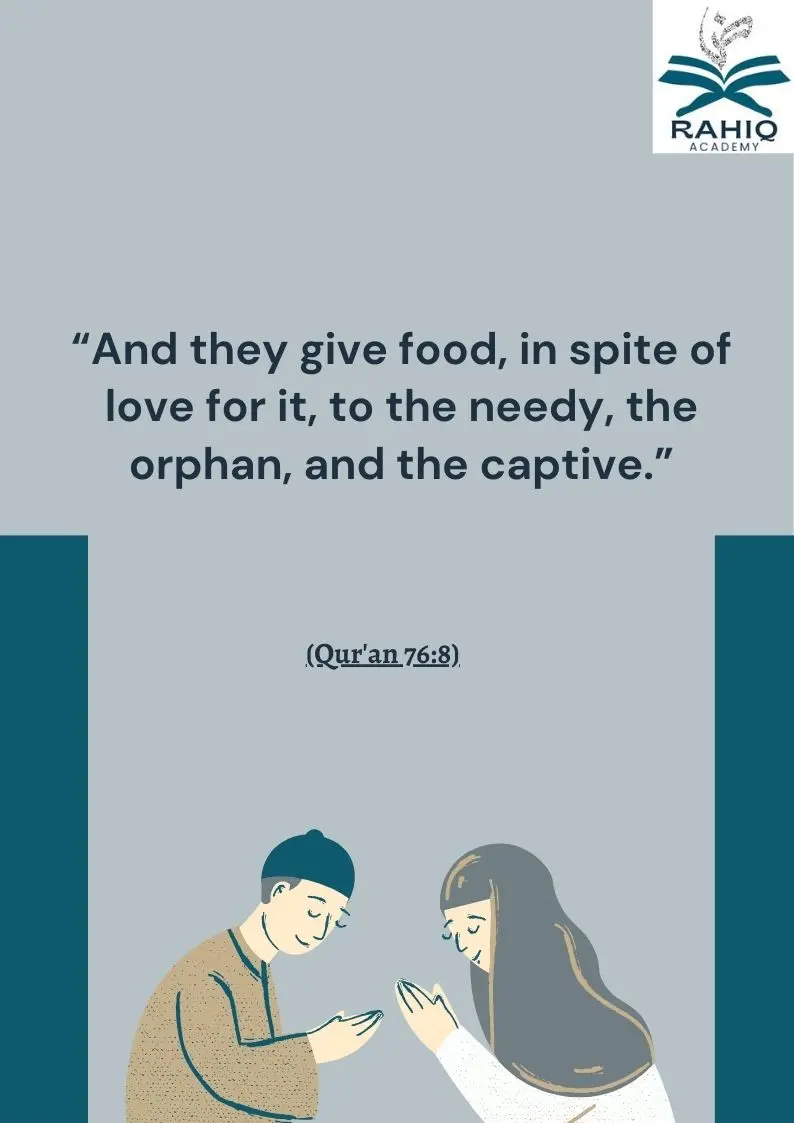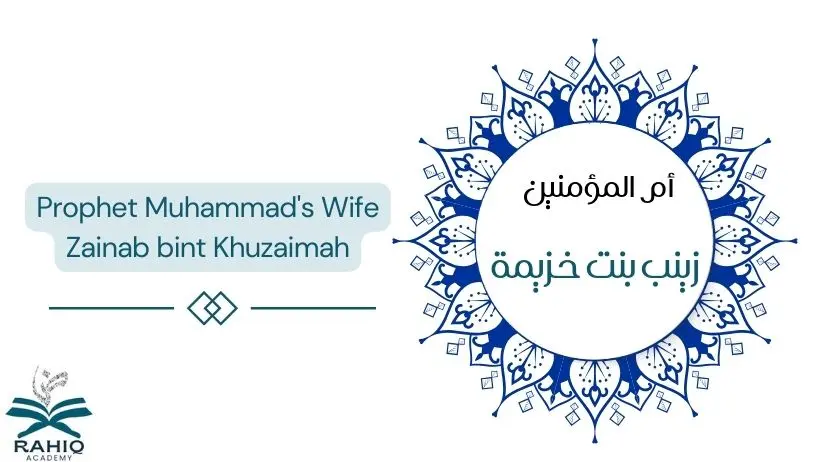Prophet Muhammad’s wife Zainab bint Khuzaimah was one of the noble wives of Prophet Muhammad and stands out for her remarkable compassion and generosity. Known as Umm al-Masakin, or “Mother of the Poor,”
She earned this title due to her lifelong dedication to helping those in need. Her story, though brief in duration, continues to inspire Muslims worldwide with lessons on empathy, selflessness, and the importance of caring for one another. This article explores Zaynab’s legacy, delving into her exceptional kindness, her marriage to the Prophet, and her enduring impact on the early Muslim community.
Zainab bint Khuzaimah heart of compassion

Zaynab bint Khuzaimah (RA) was renowned for her deep compassion, earning her the affectionate title Umm al-Masakin. From a young age, she was committed to caring for the needy, and her generosity was well-known throughout Makkah. She was constantly mindful of the vulnerable in society, and her heart naturally went out to those in difficult circumstances.
Zaynab’s approach to charity reflects the Qur’anic emphasis on giving to those in need:
“And they give food, in spite of love for it, to the needy, the orphan, and the captive.”
وَيُطْعِمُونَ الطَّعَامَ عَلَىٰ حُبِّهِ مِسْكِينًا وَيَتِيمًا وَأَسِيرًا
(Qur’an 76:8)
Her compassion wasn’t just about material giving; she extended emotional support and comfort to those who were facing hardship, embodying the true spirit of kindness that Islam encourages. Zaynab’s actions serve as a beautiful reminder of the importance of empathy, charity, and a giving heart in the life of a Muslim.
Zainab bint Khuzaimah Stories of her Generosity

Zaynab’s generous spirit went beyond occasional acts of charity. Stories from her life highlight how she consistently provided food, clothing, and shelter to those in need. She regularly gave whatever she had to the less fortunate, considering it her duty as a Muslim to care for those facing hardship. Her dedication to helping others was not for fame or recognition, but for the pleasure of Allah alone.
One well-known story illustrates her selflessness Zaynab would prepare extra food, ensuring that if anyone came to her door, she could share whatever she had with them.
She took great care to make those who came to her feel valued and respected, a testament to her character and the sincerity of her generosity. Zaynab’s kindness exemplified the Prophet Muhammad’s (PBUH) teaching on mercy:
“The merciful will be shown mercy by the Most Merciful. Be merciful on the earth, and you will be shown mercy from above.”
الرَّاحِمُونَ يَرْحَمُهُمُ الرَّحْمَانُ، ارْحَمُوا مَنْ فِي الْأَرْضِ يَرْحَمْكُمْ مَنْ فِي السَّمَاءِ
(Sunan Abu Dawood 4941)
Her life reminds Muslims of the rewards of selflessness and the significance of mercy in our interactions with others.
Zainab bint Khuzaimah Biography
Zaynab bint Khuzaimah (RA) was born into the Banu Hilal tribe in Makkah, a noble lineage respected by the Quraysh. She was married twice before marrying the Prophet Muhammad (PBUH).
Her first marriage was to Tufayl ibn al-Harith, and later, after his passing, she married his brother, Ubaydah ibn al-Harith, who was martyred following the Battle of Badr.
After Ubaydah’s passing, the Prophet Muhammad (PBUH) proposed to Zaynab. Their marriage, which took place around 3 AH, was not just a testament to the Prophet’s compassion but also a recognition of Zaynab’s character. As one of the Mothers of the Believers, she joined the Prophet’s household, where her charitable spirit continued to shine, further endearing her to the early Muslim community.
Though their marriage lasted less than a year, Zaynab’s character and kindness left an indelible mark on the Prophet’s family and the community, reinforcing the Islamic values of compassion and support for one another.
Why is Zainab bint Khuzaimah Known as Ummul Masakin ?
The title Umm al-Masakin, or “Mother of the Poor,” was given to Zaynab because of her unwavering dedication to helping the needy. Zaynab saw her resources as a means to relieve the suffering of others, and she spent her time and wealth to fulfill that purpose. Her actions reflect the Qur’anic message on the blessings of charity:
“The example of those who spend their wealth in the way of Allah is like a seed [of grain] that sprouts seven ears; in every ear is a hundred grains. And Allah multiplies His reward for whom He wills.”
مَثَلُ الَّذِينَ يُنفِقُونَ أَمْوَالَهُمْ فِي سَبِيلِ اللَّهِ كَمَثَلِ حَبَّةٍ أَنبَتَتْ سَبْعَ سَنَابِلَ فِي كُلِّ سُنبُلَةٍ مِّائَةُ حَبَّةٍ وَاللَّهُ يُضَاعِفُ لِمَن يَشَاءُ
(Qur’an 2:261)
This verse beautifully illustrates Zaynab’s approach to charity. She viewed her wealth as a blessing meant to be shared and saw it as a way to fulfill her obligations to Allah. Zaynab’s title as Umm al-Masakin continues to inspire Muslims to embrace the virtues of charity and care for the well-being of others.
Zaynab bint Khuzaimah Marriage to the Prophet Muhammad (PBUH)
The Prophet Muhammad (PBUH) proposed to Zaynab following the death of her second husband. This marriage was a testament to the Prophet’s commitment to supporting widows and recognizing their dignity and worth within the Muslim community.
Zaynab bint Khuzaimah Marriage to the Prophet was brief, but during their time together, she remained dedicated to her charitable works.
The union of Zaynab and the Prophet (PBUH) serves as an important example of compassion and mutual support, emphasizing the value of caring for those who have experienced hardship. Her role as one of the Mothers of the Believers further cemented her legacy, as her kindness and generosity became an example for the entire community.
Death of Zaynab bint Khuzaimah
Zaynab bint Khuzaimah (RA) passed away in the year 4 AH, less than a year after her marriage to the Prophet Muhammad (PBUH). She was the first of the Prophet’s wives to pass away during his lifetime, a loss that was deeply felt within the community.
The Prophet (PBUH) personally led her funeral prayer, and she was buried in the sacred cemetery of Jannat al-Baqi in Madinah, where many of the Prophet’s family members and companions are also laid to rest.
Death of Zaynab bint Khuzaimah marked the end of a life devoted to charity and compassion. Her legacy continues to be a source of inspiration, urging Muslims to emulate her selflessness and commitment to helping others. Her story is a reminder that acts of kindness and generosity, even when offered quietly and without fanfare, leave a lasting impact that transcends time.
Conclusion
The life of Zaynab bint Khuzaimah (may Allah be pleased with her) exemplifies the virtues of compassion, charity, and service to others. Known as Umm al-Masakin, her dedication to helping the poor continues to inspire Muslims today to embrace empathy and generosity. Zaynab’s life reminds us that true wealth lies not in possessions but in the kindness we show to others.
At RAHIQ Academy, we invite you to explore the lives of the Prophet’s family and companions and discover the values they embodied. Join us to deepen your understanding of Islamic teachings and gain inspiration from figures like Zaynab bint Khuzaimah, whose lives offer lessons that resonate across generations.




